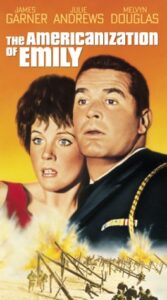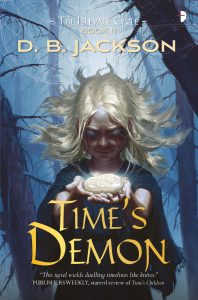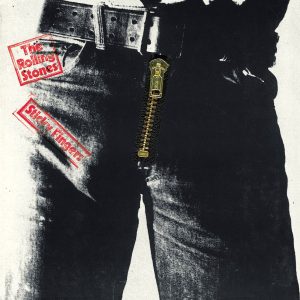I could have ended this post at the title. That really is the point. I have been writing fiction for close to thirty years. I have finished more than thirty novels and as many pieces of short fiction, and yes, each time I complete the first draft of any story, it feels great. Kind of like completing a good workout or reaching the summit on a lengthy hike.
So, what is this new, just-completed novel about?
Well, I can’t really tell you that. I am co-writing with someone — a person of some celebrity who came up with the story concept but left much of the writing to me. Someone who, I will be honest, paid me rather well. And someone who, for now, would rather I said less than more about the story, the book, and our partnership.
I’m fine with that, but it does mean that I can’t answer questions. I’m sorry to keep secrets. Really.
I can tell you that finishing this particular book has felt better than most. In part, that is a consequence of all that my family and I have been through. I finished a novella for Joshua Palmatier at Zombies Need Brains earlier this year, and I’m pleased with how that came out. But this more recent project felt big when I started it. I didn’t know if I was up for writing a full novel.
And it is always a challenge to write in someone else’s world, bringing to life someone else’s characters and plot lines. (As it happens, the Zombie Need Brains story was written in a shared universe, so both of the things I’ve worked on this year have been not entirely my own.) On the one hand, when writing in someone else’s sandbox, I want to honor the creative vision of the person or people who conceived of the world and characters. I feel a sense of responsibility to the original idea and source material (in this case, a script). At the same time, though, I also NEED to feel some ownership in the project. I want to have a creative stake in what I’m writing. Otherwise, the work has no emotional or artistic appeal, and my writing winds up sounding flat.
As many of you know, about fifteen years ago, I wrote the novelization of a script for a major motion picture (I would rather not be more specific . . .). It was a difficult and, frankly, unpleasant process, in large part because I was given no freedom to create. I had to stick to the exact dialogue and narrative presented in the script. I could do some internal monologue, but that was all. This new project was VERY different. My co-writer gave me a good deal of freedom to write the story as I thought it should be written. As this person pointed, movies and their books are often very different. They were fine with that being the case here.
As a result, the book proved to be a great way for me to work my way back into writing after last year. A good deal of the emotional content was already spelled out in the original source material, meaning I didn’t have to do a deep dive into my own emotional world, which I am not yet ready to do. But I could add in some new content, some different characters, some different points of view. And in so doing, I could put my own creative stamp on the finished product. Which I did, quite well, I believe. The resulting story really is a collaboration, a blending of artistic visions.
What’s next for me professionally?
I’m not sure yet. Nancy and I have some travel planned for this year, as well as some long-deferred work on the house and yard. And so I think I will probably take a little break from writing fiction while we tend to other parts of our lives. But that is not to say I don’t have ideas for new stories. I do. I have Thieftaker ideas, I have an old series that I still intend to reissue sometime fairly soon, I even have Fearsson ideas. And I have ideas for stories in universes not-yet-created-or-explored. So, stay tuned.
And thank you for your patience.
Have a great week.









 Hidden Gem movies: Two entries here, too, both of them idiosyncratic. But that’s the point, right? The first is a film from 1964 called The Americanization of Emily. It is a war movie set during World War II, but it will turn your expectations upside down as it rejects normal images of heroism and wartime valor. The cast is great — Julie Andrews in the title role is terrific. She’s worldly, sassy, and a long, long way from Mary Poppins and Fräulein Maria. James Garner, a favorite of mine, is her love interest, and is not at all the usual romantic lead. James Coburn and Melvyn Douglas are strong in supporting roles.
Hidden Gem movies: Two entries here, too, both of them idiosyncratic. But that’s the point, right? The first is a film from 1964 called The Americanization of Emily. It is a war movie set during World War II, but it will turn your expectations upside down as it rejects normal images of heroism and wartime valor. The cast is great — Julie Andrews in the title role is terrific. She’s worldly, sassy, and a long, long way from Mary Poppins and Fräulein Maria. James Garner, a favorite of mine, is her love interest, and is not at all the usual romantic lead. James Coburn and Melvyn Douglas are strong in supporting roles. But at the very least, we need to see our main heroes grappling with what they have endured and setting their sights on what is next for them. We don’t need this for every character but we need it for the key ones. Ask yourself, “whose book is this?” For me, this is sometimes quite clear. With the Thieftaker books, every story is Ethan’s. And so I let my readers see Ethan settling back into life with Kannice and making a new, fragile peace with Sephira, or something like that. With other projects, though, “Whose book is this?” can be more complicated. In the Islevale books — my time travel/epic fantasy trilogy — I needed to tie off the loose ends of several plot threads: Tobias and Mara, Droë, and a few others. Each had their “Louis” moment at the end of the last book, and also some sense of closure at the ends of the first two volumes.
But at the very least, we need to see our main heroes grappling with what they have endured and setting their sights on what is next for them. We don’t need this for every character but we need it for the key ones. Ask yourself, “whose book is this?” For me, this is sometimes quite clear. With the Thieftaker books, every story is Ethan’s. And so I let my readers see Ethan settling back into life with Kannice and making a new, fragile peace with Sephira, or something like that. With other projects, though, “Whose book is this?” can be more complicated. In the Islevale books — my time travel/epic fantasy trilogy — I needed to tie off the loose ends of several plot threads: Tobias and Mara, Droë, and a few others. Each had their “Louis” moment at the end of the last book, and also some sense of closure at the ends of the first two volumes. Why do I do this? Why am I suggesting you do it, too? Because while we are telling stories, our books are about more than plot, more than action and intrigue and suspense. Our books are about people. Not humans, necessarily, but people certainly. If we do our jobs as writers, our readers will be absorbed by our narratives, but more importantly, they will become attached to our characters. And they will want to see more than just the big moment when those characters prevail (or not). They will want to see a bit of what comes after.
Why do I do this? Why am I suggesting you do it, too? Because while we are telling stories, our books are about more than plot, more than action and intrigue and suspense. Our books are about people. Not humans, necessarily, but people certainly. If we do our jobs as writers, our readers will be absorbed by our narratives, but more importantly, they will become attached to our characters. And they will want to see more than just the big moment when those characters prevail (or not). They will want to see a bit of what comes after. Music isn’t meant to be sold song by song. We’re supposed to buy albums. We’re supposed to put up with the bad songs in order to enjoy the good ones. That makes the listening experience better. For every “Eleanor Rigby” and “For No One” we should have to endure a “Doctor Robert.” For every “Brown Sugar” and “Can’t You Hear Me Knockin’?” we should have to suffer through a “You Gotta Move.” It’s only fair. No one is entitled to a perfect listening experience, and songwriters deserve the chance to have their crappy songs heard alongside the good ones. This is America, damnit!
Music isn’t meant to be sold song by song. We’re supposed to buy albums. We’re supposed to put up with the bad songs in order to enjoy the good ones. That makes the listening experience better. For every “Eleanor Rigby” and “For No One” we should have to endure a “Doctor Robert.” For every “Brown Sugar” and “Can’t You Hear Me Knockin’?” we should have to suffer through a “You Gotta Move.” It’s only fair. No one is entitled to a perfect listening experience, and songwriters deserve the chance to have their crappy songs heard alongside the good ones. This is America, damnit!